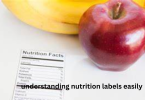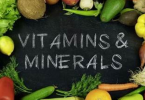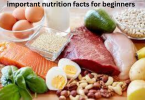If you’ve ever tried to lose weight, build muscle, or just eat healthier, you’ve probably heard a lot about protein and calories. But understanding how they actually affect your diet can be confusing. Today, let’s sit down and have a friendly chat about protein and calorie facts for diet, breaking it all down into practical advice you can use right away.
Why Protein Is So Important in Your Diet

Protein is one of the three macronutrients your body needs (along with carbohydrates and fats). It’s essential for almost every function in your body, including:
- Building and repairing muscles
- Supporting skin, hair, and nails
- Producing hormones and enzymes
- Boosting your immune system
But when we’re talking about protein and calorie facts for diet, protein has some extra benefits that make it key for weight management:
1. Protein Keeps You Full Longer
Protein digests slower than carbohydrates, which helps you feel full and satisfied for longer periods. This can help prevent unnecessary snacking or overeating.
2. Protein Supports Muscle Maintenance and Growth
Even when you’re losing weight, eating enough protein helps protect your muscle mass. Muscle burns more calories at rest than fat, which means a higher metabolism. More muscle = easier weight management.
3. Protein Can Boost Your Metabolism
Your body burns more calories digesting protein than carbs or fats — this is called the thermic effect of food. About 20–30% of the calories from protein are used just for digestion!
How Much Protein Do You Actually Need?
The amount of protein you need depends on your body weight, activity level, and goals:
| Goal | Protein per kg body weight |
| Sedentary adult | 0.8g |
| Active adult | 1.2–1.6g |
| Muscle gain | 1.6–2.2g |
Example: If you weigh 70 kg:
- Sedentary: 56g/day
- Active: 84–112g/day
- Muscle-building: 112–154g/day
Top Protein-Rich Foods
Here are some easy-to-find foods that pack a protein punch:
| Food | Protein per 100g |
| Chicken breast | 31g |
| Eggs | 6g per egg |
| Greek yogurt | 10g |
| Cottage cheese | 11g |
| Lentils | 9g |
| Chickpeas | 7g |
| Tofu | 8g |
| Salmon | 20g |
| Quinoa | 4g |
Tip: Try to include a source of protein in every meal—it helps balance blood sugar, keeps you full, and improves muscle recovery.
Calories: The Fuel Your Body Needs
Calories are units of energy. Your body uses them for everything from breathing to walking to thinking. But when it comes to dieting, understanding protein and calorie facts is crucial.
Calories and Weight Goals
- Weight loss: Eat fewer calories than you burn.
- Weight gain/muscle building: Eat more calories than you burn.
- Maintenance: Balance calories consumed with calories burned.
Daily Calorie Ranges (Average Adults)
- Women: 1,600 – 2,200 calories/day
- Men: 2,000 – 2,800 calories/day
These numbers vary depending on your activity level, metabolism, age, and body composition.
How Protein and Calories Work Together
Here’s why understanding protein and calorie facts for diet matters:
- Protein keeps you full, which can reduce total calorie intake.
- Protein has a higher thermic effect, meaning you burn more calories digesting it.
- Balanced protein and calorie intake supports healthy weight loss or gain without feeling deprived.
Benefits of a Protein-Focused, Calorie-Conscious Diet
When done correctly, focusing on protein while managing calories can have amazing benefits:
- Weight Management: Helps with fat loss while preserving lean muscle.
- Appetite Control: Protein helps curb cravings.
- Muscle Recovery: Essential for athletes and active individuals.
- Metabolic Boost: Higher protein diets slightly increase calorie burn.
- Bone Health: Some studies show high-protein diets support stronger bones.
You may also like to read these posts:
Low Calorie Recipes for Weight Loss: Eat Smart, Feel Great, and Stay Full
Nutritious Breakfast and Dinner Ideas: A Complete Guide to Eating Healthy Every Day
Healthy Food Recipes for Daily Diet
Best Healthy Recipes for Busy People: Simple, Delicious, and Nutritious Meals You Can Make Anytime
Drawbacks and Considerations

Even though protein is important, too much of a good thing can have drawbacks:
- Kidney Stress (for those with kidney issues): Excess protein can strain kidneys if there’s pre-existing disease.
- Cost: High-protein diets can be more expensive due to meat, fish, and dairy.
- Digestive Issues: Too much protein at once may cause bloating or constipation, especially if fiber intake is low.
- Calorie Overload: Protein foods still contain calories—overeating protein can lead to weight gain.
- Imbalanced Diet: Focusing only on protein may mean you’re missing out on healthy carbs, fats, and micronutrients.
Practical Tips for a Balanced Protein & Calorie Diet
- Combine protein with vegetables and whole grains for balance.
- Spread protein intake throughout the day rather than in one meal.
- Track calories loosely, not obsessively, to ensure you’re in the right range.
- Include healthy fats like avocado, olive oil, and nuts—they’re calorie-dense but essential.
- Hydrate! Protein metabolism uses water.
Sample 1-Day Meal Plan
Here’s an example day that balances protein and calories perfectly:
Breakfast:
- Greek yogurt + berries + chia seeds
- 1 boiled egg
Protein: ~25g | Calories: ~350
Lunch:
- Grilled chicken breast
- Quinoa + mixed vegetables
Protein: ~35g | Calories: ~450
Snack:
- Handful of almonds
Protein: 6g | Calories: 180
Dinner:
- Baked salmon
- Steamed broccoli + salad with olive oil
Protein: ~30g | Calories: 450
Daily Total: ~96g protein, ~1,430 calories
This type of meal plan supports weight loss while maintaining muscle, and it’s full of nutrients.
Final Thoughts
Understanding protein and calorie facts for diet is one of the most important steps toward a healthy lifestyle. When you focus on eating enough protein and monitoring your calories, you can:
- Control hunger
- Preserve muscle
- Support metabolism
- Achieve your weight goals sustainably
Remember, it’s not about restriction—it’s about balance. Use protein as your ally, manage your calories wisely, and your diet will work for you rather than against you.
FAQs
1. What is the ideal amount of protein I should eat daily?
It depends on your weight, activity level, and goals:
Sedentary adults: 0.8g per kg of body weight
Active adults: 1.2–1.6g per kg
Muscle-building goals: 1.6–2.2g per kg
2. Can I eat too much protein?
Yes. While most healthy adults can handle a high-protein diet, excessive protein may:
Cause digestive issues like bloating or constipation
Stress the kidneys if pre-existing kidney problems exist
Add extra calories, potentially causing weight gain
3. Are all calories equal?
Not exactly. While a calorie is technically a unit of energy, your body processes macronutrients differently:
Protein: 20–30% of calories burned during digestion
Carbs: 5–10% burned
Fat: 0–3% burned
4. Can I lose weight by eating more protein?
Yes! Higher protein intake can:
Increase satiety, reducing overall calorie intake
Preserve muscle mass during weight loss
Boost metabolism slightly through the thermic effect
5. Should I focus only on protein to lose weight?
No. While protein is important, a healthy diet needs:
Carbohydrates for energy
Healthy fats for brain and hormone health
Fiber and micronutrients from fruits and vegetables





